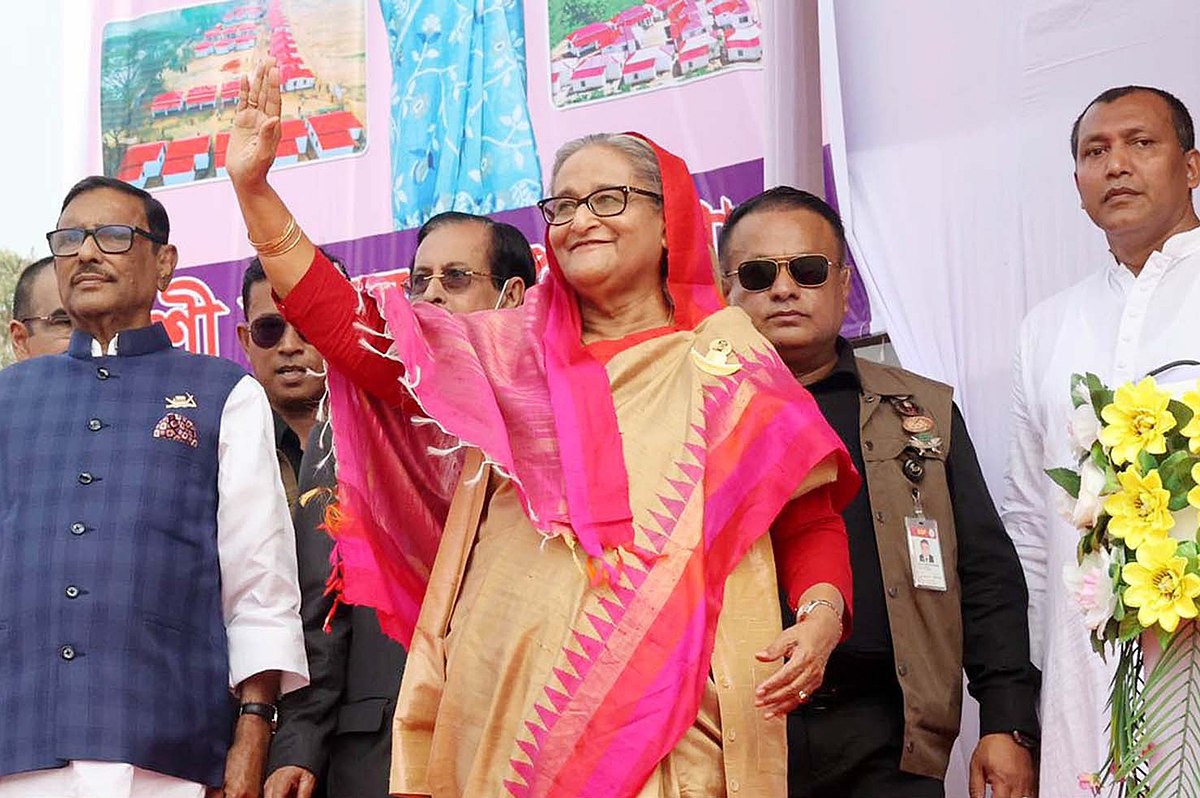This is a summary of the original paper by Hamna Tariq and Uzair Younus for the Atlantic Council titled that may be found here
Pakistan’s startups and technology sector have been witnessing unprecedented growth. Despite tough times for the global and domestic economy, Pakistani startups raised $347 million in 2022. Additionally, the information technology (IT) services sector has emerged as the largest net services exporter in the country, with IT exports more than doubling from $1.19 billion in fiscal year (FY) 2019 to $2.62 billion in FY 2022. Pakistan is also ranked as one of the largest freelance markets in the world, and the national government has set a target of earning over $3 billion from this sector by 2024. The country is not only digitally-native, but also has the technical skills to develop and export technology to the world.
The development of Pakistan’s technology sector is not a complete surprise. Beyond the increasing access to internet connectivity, there has been a global shift in terms of investors seeking disruptive, technology-first startups as well as increased outsourcing of services. The combination of these factors has led to a dramatic growth in Pakistan’s technology sector.
Broadly speaking, the information technology sector can be categorized into: startups, which are fast-growing scalable businesses backed by venture capital; information technology services companies, which primarily provide IT services through labor hired in Pakistan; and freelancers, who are individuals that provide services locally and abroad through digital means.
Strong start
The early growth in this sector was driven by technology services companies such as Cybernet, a leading internet services provider, and Netsol, a software company listed on both the NASDAQ and Pakistan Stock Exchange. As these companies grew, the technology revolution caught the attention of a new generation of Pakistanis, leading to the emergence of the current startup ecosystem in the country.
The rise of Careem, a startup that began as a ride-hailing platform before it was acquired by Uber for over $3 billion in 2020, served as a key catalyst for rapid growth and further energized the new generation of entrepreneurs in the country.
This shift in attitudes was a critical driver of growth for the technology sector as entrepreneurs, investors and technologists gravitated towards it with ideas, money and skill-sets. The pandemic further changed the landscape, diverting global interest in the country’s startup ecosystem and significantly boosting Pakistan’s information technology exports. A shift towards remote work allowed both foreign investors and businesses looking for technology services to take a fresh look at Pakistan. An increasing number of citizens entered the freelancing market, leading to further growth in remittance inflows.
Policymakers in Pakistan, led by the State Bank of Pakistan (SBP) and the Securities and Exchange Commission of Pakistan (SECP) also played a positive role by loosening the regulatory environment and enabling business, such as a friendlier policy for repatriation of investment. Allowing Pakistani companies to establish holding companies abroad while locating the operating arm in Pakistan contributed to the success of the sector. Increasing internet access driven by low-cost smartphones, affordable internet access, and a young, digitally-native population added further momentum.
Another forward-looking policy was the Cloud First Policy introduced by the Ministry of Information Technology and Telecommunications. The policy required all federal public service entities to prioritize cloud for future technology infrastructure. Recognizing the potential of this sector, the government began work on establishing five Special Technology Zones (STZs) that could generate up to $5 billion in revenue in the next few years.
Headwinds before the calm
Unsustainable rapid price acceleration due to easy money and investor confidence had negative consequences as well, reflected in the dramatic collapse of Airlift Technologies, a Quick Commerce company that had managed to raise $85 million, the largest in Pakistan’s history. With global markets adjusting to the post-pandemic recession and liquidity constraints, the flurry of investments into Pakistan slowed down considerably forcing startups to display more business discipline. Domestic political and economic instability have further complicated the situation, leading to sky-high inflation and a steep decline in the value of the rupee, all taking the shine off Pakistan’s attraction to technology entrepreneurs.
However, it is not all doom and gloom. Technology corporates are bullish on the broader ecosystem, arguing that the rapid depreciation of the rupee makes Pakistan even more competitive in terms of technology exports. The market correction has meant that investors who parachuted into the ecosystem have now left. More determined investors, especially domestic ones, continue to invest with more discipline and due diligence in high-potential ventures. In addition, the country’s IT services export sector continues to grow rapidly.
Meanwhile, there have been some notable acquisitions such as that of DigitalOcean by Cloudways for $350 million and TezFinancial by Zoodpay. This proves that Pakistani companies can be strong acquisition targets by global players who are interested in entering the Pakistani market.
Maladies
Bureaucratic red tape, inconsistent policies and gaps in policymakers’ understanding of the sector are major challenges to the technology ecosystem in Pakistan. Startups struggle to get registered because they do not have a physical location. That most technologists simply need a few laptops and an internet connection to start a technology venture has not yet been internalized by policymakers.
Inconsistency in taxation policy also harms investor and business confidence, discouraging the growth of the technology ecosystem. The Federal Board of Revenue (FBR) is often unable to determine which companies should get tax exemptions, or differentiate between IT as a service and IT as a product.
The focus on building technology parks across the country which are nothing but real-estate opportunities should be replaced by a focus on expanding access to broadband connectivity, imparting technology skills to younger citizens and encouraging entrepreneurship and innovation at a societal level.
The dependence on cash transactions and lack of digitization make it difficult to establish a reliable credit history for banks to determine the creditworthiness of a business. The financial services industry in Pakistan has not aggressively invested in digital banking. However, the recent growth of fintech startups promises to bridge the digital divide.
While startups have managed to raise angel – or early-stage investment – there remains a gap around late-stage funding, and given the overall economic instability in the country, bridging this gap may pose a difficult challenge for startups.
A limited talent pool, especially mid-level managerial and product development talent, remains a major barrier in the technology ecosystem. Pakistani universities currently produce about 25,000 technology graduates every year and experts argue that the number needs to be closer to 100,000 a year for the sector to meet its true potential.
Cures
Rather than impose new regulations on the sector, government actors should further liberalize policies to increase access to credit facilities, ease registration processes for technology ventures, introduce dispute mediation mechanisms, ensure consistency of policies, and bridge the digital and financial inclusion divide.
Investing in developing the national talent pool can lead to the emergence of more cutting-edge, product-based technology companies. Both, government and industry have a role to play here, as training and retaining talent in the country is vital to securing the long-term growth of this sector. The growth of companies like Afiniti, a software company developing artificial intelligence-based products for global clients, has showcased that sophisticated technology products can also be developed in Pakistan.
Collaboration between Pakistani and international entities could help generate additional revenue and improve branding, thus bolstering the technology ecosystem in the country. The most likely partnerships would be with companies based in the MENA region for their geographic and cultural proximity. The success of UAE-based Careem is evidence that this is a likely outcome.
Conclusion
Pakistan’s technology ecosystem stands on solid foundations and has a committed community of investors, technologists, and entrepreneurs investing time and resources to realize the full potential of this sector. The export growth experienced by Pakistan’s technology sector is evidence that Pakistan’s IT services are globally competitive. While the immediate future may appear challenging, especially for domestic startups, the growing culture of innovation and entrepreneurship has captured the imagination of younger Pakistanis. As the country becomes more digitized, technology-led enterprises will play an increasing role in generating growth, earning exports, and attracting investments.
The views expressed herein may not necessarily reflect the views of JI FAD and/or any of its affiliates






